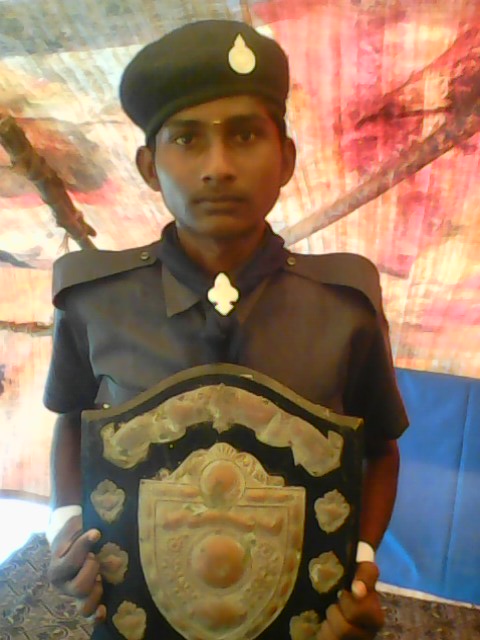Effects of Smoking on Your Health: Do Not Smoke No good for our Health
Effects of Smoking on Your Health: Do Not Smoke No good for our Health
We get More Information click here
If you smoke, you've almost certainly heard friends and family nagging you to stop.
Knowing about long-term risks though may not be enough to nudge you to quit, especially if you're young. It can be hard to feel truly frightened by illnesses that may strike decades later.
So, if you carry on smoking, what could be the effects on your body?
Smoking is harmful because there are many ingredients in tobacco smoke that can harm your body.
The main health risks from smoking are lung cancer, heart disease and stroke. Smoking causes almost 90% of deaths from lung cancer, around 80% of deaths from COPD, and around 17% of deaths from heart disease.
புகைத்தலின் வரலாறு : கி.மு. 5000 ஆம் ஆண்டிற்கும் முன்னதாக காலங்குறிக்கப்படலாம், மேலும் உலகம் முழுதும் பல்வேறுபட்ட பண்பாடுகளில் பதிவு செய்யப்பட்டுள்ளது. முற்காலத்திய புகைபிடித்தல் மத ரீதியிலான சடங்குகளில் தொடர்புடைய வகையில் உருவாகியது; கடவுளர்களுக்கு படையலாக, தூய்மைப்படுத்தும் சடங்குகளில் அல்லது சூனியக்காரர்கள் மற்றும் பூசாரிகளை தங்களது புத்தியை தெய்வீகமாக்க அல்லது ஆன்ம விழிப்புணர்ச்சி நோக்கத்திற்கு தகவமைத்துக்கொள்ள அனுமதிக்க என்பதாகவும் இருந்தது. ஐரோப்பிய ஆய்வுப் பயணம் மற்றும் அமெரிக்க கண்டங்களின் கைப்பற்றலுக்குப் பிறகு, மீதமுள்ள உலகம் முழுதும் புகையிலை புகைபிடிக்கும் பழக்கம் விரைவாகப் பரவியது. இந்தியா மற்றும் ஆப்பிரிக்காவின் துணை-சஹாராப் பகுதிகள் போன்றவற்றில் அது வழக்கத்திலுள்ள புகைபிடித்தலுடன் இணைந்தது (பெரும்பாலும் கன்னாபீஸ்கள்). ஐரோப்பாவில், அது புதிய மாதிரியான சமூக நடவடிக்கையை அறிமுகப்படுத்தியது. மேலும் போதைப் பொருளை உட்கொள்ளும், அதற்கு முன்னர் அறியப்படாத ஓர் வடிவத்தை அறிமுகப்படுத்தியது.

How smoking damages the body
As well as nicotine, there are more than 4,000 chemicals in tobacco smoke, of which many are poisons. At least 60 of these chemicals cause cancer.
Among some of the most dangerous components are:
Tar: When you breathe in tobacco smoke, some tar is deposited in the lungs. Your lungs are lined with tiny hairs that help 'sweep' germs and other things out of your lungs. It is harder for these hairs to move if your lungs are coated with tar.
Carbon monoxide: Carbon monoxide binds itself to haemoglobin in the bloodstream and prevents it from carrying enough oxygen around the body. This means that someone who smokes is likely to get out of breath and get tired more easily.
Eventually, you can get a lung disease called chronic obstructive pulmonary disease (COPD). If you have this, it gets harder and harder to breathe.
Benzene: Exposure to benzene can cause cell damage at the genetic level, and has been linked to a range of different cancers, such as leukaemia and kidney cancer.
Benzene used to be added to petrol, but the practice was stopped because of health concerns
No matter how you smoke it, tobacco is dangerous to your health and affects your entire body.
Smoking and Cancer
We get More Information click here
If you smoke, you've almost certainly heard friends and family nagging you to stop.
Knowing about long-term risks though may not be enough to nudge you to quit, especially if you're young. It can be hard to feel truly frightened by illnesses that may strike decades later.
So, if you carry on smoking, what could be the effects on your body?
Smoking is harmful because there are many ingredients in tobacco smoke that can harm your body.
The main health risks from smoking are lung cancer, heart disease and stroke. Smoking causes almost 90% of deaths from lung cancer, around 80% of deaths from COPD, and around 17% of deaths from heart disease.
புகைத்தலின் வரலாறு : கி.மு. 5000 ஆம் ஆண்டிற்கும் முன்னதாக காலங்குறிக்கப்படலாம், மேலும் உலகம் முழுதும் பல்வேறுபட்ட பண்பாடுகளில் பதிவு செய்யப்பட்டுள்ளது. முற்காலத்திய புகைபிடித்தல் மத ரீதியிலான சடங்குகளில் தொடர்புடைய வகையில் உருவாகியது; கடவுளர்களுக்கு படையலாக, தூய்மைப்படுத்தும் சடங்குகளில் அல்லது சூனியக்காரர்கள் மற்றும் பூசாரிகளை தங்களது புத்தியை தெய்வீகமாக்க அல்லது ஆன்ம விழிப்புணர்ச்சி நோக்கத்திற்கு தகவமைத்துக்கொள்ள அனுமதிக்க என்பதாகவும் இருந்தது. ஐரோப்பிய ஆய்வுப் பயணம் மற்றும் அமெரிக்க கண்டங்களின் கைப்பற்றலுக்குப் பிறகு, மீதமுள்ள உலகம் முழுதும் புகையிலை புகைபிடிக்கும் பழக்கம் விரைவாகப் பரவியது. இந்தியா மற்றும் ஆப்பிரிக்காவின் துணை-சஹாராப் பகுதிகள் போன்றவற்றில் அது வழக்கத்திலுள்ள புகைபிடித்தலுடன் இணைந்தது (பெரும்பாலும் கன்னாபீஸ்கள்). ஐரோப்பாவில், அது புதிய மாதிரியான சமூக நடவடிக்கையை அறிமுகப்படுத்தியது. மேலும் போதைப் பொருளை உட்கொள்ளும், அதற்கு முன்னர் அறியப்படாத ஓர் வடிவத்தை அறிமுகப்படுத்தியது.

How smoking damages the body
As well as nicotine, there are more than 4,000 chemicals in tobacco smoke, of which many are poisons. At least 60 of these chemicals cause cancer.
Among some of the most dangerous components are:
Tar: When you breathe in tobacco smoke, some tar is deposited in the lungs. Your lungs are lined with tiny hairs that help 'sweep' germs and other things out of your lungs. It is harder for these hairs to move if your lungs are coated with tar.
Carbon monoxide: Carbon monoxide binds itself to haemoglobin in the bloodstream and prevents it from carrying enough oxygen around the body. This means that someone who smokes is likely to get out of breath and get tired more easily.
Eventually, you can get a lung disease called chronic obstructive pulmonary disease (COPD). If you have this, it gets harder and harder to breathe.
Benzene: Exposure to benzene can cause cell damage at the genetic level, and has been linked to a range of different cancers, such as leukaemia and kidney cancer.
Benzene used to be added to petrol, but the practice was stopped because of health concerns
No matter how you smoke it, tobacco is dangerous to your health and affects your entire body.
- Bladder
- Blood (acute myeloid leukemia)
- Cervix
- Colon and rectum (colorectal)
- Esophagus
- Kidney and ureter
- Larynx
- Liver
- Oropharynx (includes parts of the throat, tongue, soft palate, and the tonsils)
- Pancreas
- Stomach
- Trachea, bronchus, and lung
Click More : http://generalsocialservices.blogspot.in/
Labels: social services






















